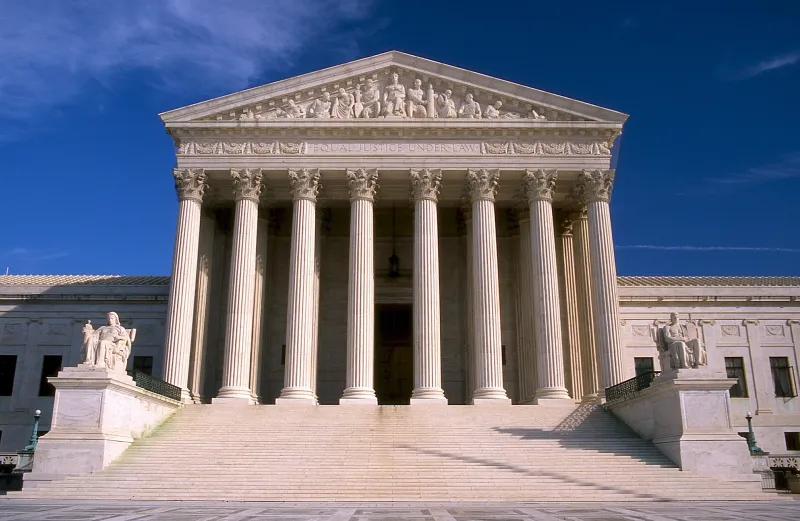It’s a decision that has caused a stir in the United States. The Supreme Court issued a ruling earlier this week that could limit immigrants from claiming or defending their rights in court, holding that challenges must be made individually and not on a class basis.
In its ruling (6-3), the court relied on a 1996 law, which ordered lower federal courts to give consideration only to entire classes of immigrants, as opposed to individual immigrants who sue, that could impact immigration officials in carrying out their duties.
This decision could also influence the Court’s upcoming decision in the so-called “Remain in Mexico” case, writes the prestigious American newspaper CNN.
This decision reflects a weakening of democratic norms in the opinion of many on American soil.
Majority Justice Samuel Alito emphasized the binding nature of the provision, which “generally prohibits lower courts from ruling on orders related to a group of migrants.
Judge Sonia Sotomayor expressed her amazement. In her position, she was joined by her colleague Elena Kagan and supported in part by Justice Stephen Breyer.
Sotomayor said the majority opinion “elevates fragmentary dictionary definitions and political concerns above ordinary meaning and context.”
“I respectfully disagree with the Court’s blind analysis, which will leave many vulnerable immigrants unable to protect their rights,” she wrote.
The challenge, called Garland v. Gonzales, was initiated by a group of migrants who filed a class-action lawsuit complaining about the U.S. government’s practice of detaining some immigrants for more than six months. The Supreme Court intends to prosecute this action as not being a violation of immigration law.
In this case, the majority of the Supreme Court found that a lower court exceeded its authority under immigration law by granting the plaintiffs a class action suit. There is no doubt that this position of the U.S. Supreme Court will influence the modus operandi of immigration policy challenges in federal courts in the future, notes CNN.
For the Supreme Court, some immigrants can be held for at least six months without a bail hearing.
Justice Samuel Alito said that the immigration law involved “does not preclude a court from issuing an injunction on behalf of a particular alien,” but that “the formal order on behalf of an entire class of aliens is not authorized because it is not limited to remedying the unlawful ‘application’ of the relevant laws to ‘an alien.
The U.S. Supreme Court’s decision is denounced by immigrant rights advocates as a blow, as they see their leverage over immigration policies being significantly reduced in the courts.
“The ramifications of the Court’s errors should not be ignored,” Sotomayor wrote. “Today’s decision risks depriving many vulnerable people of any real opportunity to protect their rights.”
The judge focused on the many difficulties immigrants face in interpreting immigration laws” and the obstacles they face when detained.
“It is one thing to expect citizens facing these obstacles to defend themselves against deportation in immigration court. It is quite another to place the additional burden on each of them to challenge systemic violations of their rights through a discrete, collateral proceeding in federal court,” Sotomayor laments.
For the judge, this decision thus gives free rein to the prosecution of violations of immigrants’ rights in general except for those who are able to afford competent counsel.
The majority’s conclusion in Gonzales could influence the so-called “Remain in Mexico” case, which the Supreme Court is expected to decide shortly. In that case, Texas and other red states are challenging the Biden administration’s withdrawal of a controversial Trump-era policy – known as “Remain in Mexico” – that required migrants to remain in Mexico pending changes in immigration procedures.
Lower court orders have been issued in favor of Texas before, slowing the Biden administration’s willingness to review the policy.
Source: https://apple.news/AmrqnH641R7OJ2O1373djxQ

